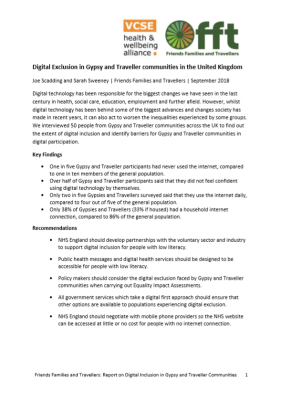
Digital Exclusion in Gypsy and Traveller communities in the United Kingdom
Publication type: Report | Author: Friends, Families and Travellers | Themes: Report
An overview of the digital exclusion experienced by Gypsy and Traveller communities based upon 50 interviews carried out by Friends, Families and Travellers in Summer 2018 as part of the VCSE Health and Wellbeing Alliance.
